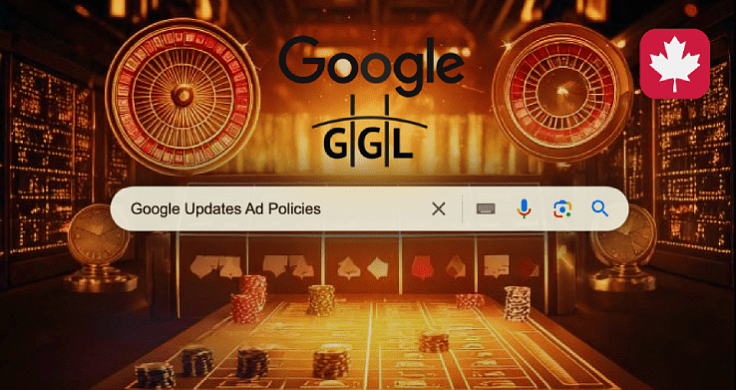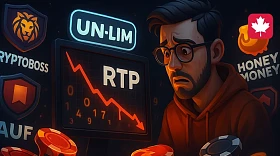
Google Introduces new Ad Policies together with Germany’s GGL
In a landmark move, Google has updated its “Gambling and other games” advertising policy in Germany in collaboration with Germany’s Joint Gambling Authority (GGL). The revised policy ensures that only licensed organizers and intermediaries can advertise gambling-related services on Google Ads, while explicitly banning comparison websites that aggregate offers from multiple providers. This update marks a significant step toward curbing the prevalence of illegal gambling advertisements online.
Targeting Illegal Online Gambling
The policy revision reflects a proactive approach to combat illegal gambling activities, a growing concern in the digital space. Google’s close cooperation with the GGL since 2023 has led to tailored guidelines aimed at restricting unauthorized gambling operators from appearing in paid advertisements.
Ronald Benter, CEO of GGL, remarked on the policy's effectiveness, stating, “In our view, the amended advertising guideline is currently having a clear effect.” Indeed, the results have been tangible: since the guidelines were introduced, paid ads promoting illegal gambling have virtually disappeared from Google’s search results in Germany.
This success stems from rigorous enforcement and monitoring efforts by the GGL. However, challenges persist in areas such as search engine optimization (SEO), where unlicensed operators exploit loopholes to appear in organic search results. Benter emphasized the need for continued vigilance, saying, “We will remain in contact with Google to achieve further restrictions on advertising opportunities for illegal gambling providers.”
Broader Implications and the Need for Stricter Measures
Germany’s model of collaboration between regulatory bodies and tech giants like Google has set a benchmark for addressing illegal gambling advertising. The initiative has inspired interest from other European countries, which are now considering similar measures to manage gambling advertisements and strengthen their own regulations.
However, these steps, while commendable, highlight a larger issue: the pervasive influence of gambling advertisements in both regulated and unregulated spaces. Despite tightening rules, gambling ads continue to normalize risky behavior, especially among vulnerable populations, including minors and those struggling with addiction.
A Call to Ban All Gambling Advertisements
The regulatory measures taken in Germany should be seen as the beginning of a broader movement to prohibit gambling advertisements altogether. Even with strict licensing requirements, gambling ads fuel a culture of excessive betting and risk-taking, often targeting individuals ill-equipped to manage such influences.
Banning all forms of gambling advertising would not only curb illegal operations but also significantly reduce the social harm associated with gambling. This would align with public health goals and protect vulnerable communities from exploitation.
In conclusion, while Google and the GGL’s efforts are commendable and impactful, they underscore the urgent need for more decisive action. By eliminating gambling advertisements entirely, governments and companies can create a safer digital environment, free from the pressures of an industry rooted in exploitation. It’s time to prioritize societal well-being over profit and take a firm stand against gambling ads.




tickscollar All this bullshit was invented to squeeze out the last money. It used to be easier - bet on red, win or lose. And now some chickens are running, airplanes are flying... Circus.



xSuiZ The article is fire! Everything was laid out according to the facts. Drake is not a ludomaniac, he is a walking advertisement. And while the suckers believe in his "curse", Stake rakes in the money. Beautiful, you can't say anything. I've been riding a steak myself for a year now, I threw in crypto and generally don't give a about all the blocking.


Leoak Finally a good article on NC! I've been playing them since the very beginning, since the first Deadwood. Yes, their dispersion is crazy, you can lose a deposit in 100 spins. But when he pours ... It's worth it. In Mental x15k I caught, I still remember this spin. The whole point is in their x-mechanics, they really change the game, and not just for show.


tealblossom 2 minutes to respond? Yes, this is a dream! Otherwise, while you wait for these operators, you will already want to play. It's high time!


2sMilkiMiDiosa FIRE IN THE HOLE 3!! SCAM FROM NOLIMIT! HIT 2K, SPIN $10, NOT A SINGLE, BONUS!! HE JUST EATS AND DOES NOT CHOKE! I'LL NEVER GET INTO THAT SHIT AGAIN!












































Germany’s approach is impressive, but it's not enough. Gambling ads should be treated like tobacco ads—completely banned. They’re dangerous, and no amount of regulation can change that.
As someone who’s seen friends struggle with gambling addiction, I fully support banning gambling ads altogether. Even licensed ads contribute to the problem—they glamorize an industry that profits from people's losses.
It's interesting to see Google working with regulators, but this feels like a half-measure. Illegal operators are resourceful, and they'll just find new ways to game the system. Only a total ban will stop the harm these ads cause.
While I applaud the effort to regulate gambling ads, I think the real issue is allowing them at all. No matter how tightly controlled, these ads still promote a harmful industry. A total ban would send a stronger message."
This is a step in the right direction! Gambling ads can be so predatory, especially targeting young people and those already struggling with addiction. It’s great to see Germany taking a stand—now let’s hope other countries follow suit and push for a complete ban.